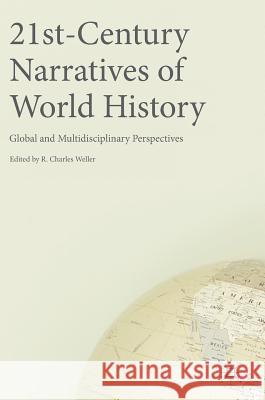21st-Century Narratives of World History: Global and Multidisciplinary Perspectives » książka
topmenu
21st-Century Narratives of World History: Global and Multidisciplinary Perspectives
ISBN-13: 9783319620770 / Angielski / Twarda / 2017 / 412 str.
Kategorie BISAC:
Wydawca:
Palgrave MacMillan
Język:
Angielski
ISBN-13:
9783319620770
Rok wydania:
2017
Wydanie:
2017
Ilość stron:
412
Waga:
0.71 kg
Wymiary:
21.0 x 14.8
Oprawa:
Twarda
Wolumenów:
01
Dodatkowe informacje:
Wydanie ilustrowane











